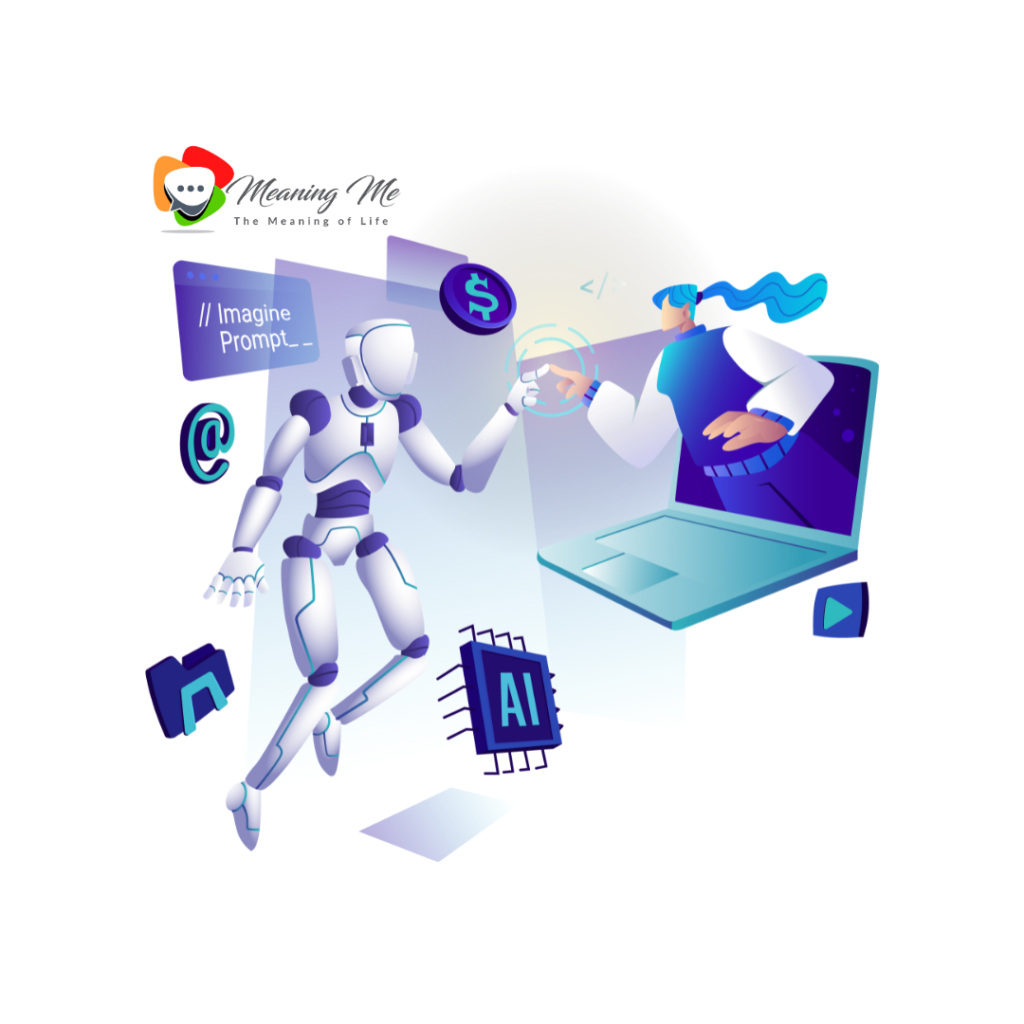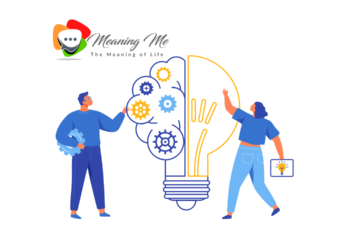The Rise of the Machines: How Artificial Intelligence is Revolutionizing Online Education
Introduction
The landscape of education is undergoing a seismic shift. Gone are the days of one-size-fits-all learning in a traditional classroom setting. Artificial intelligence (AI) is emerging as a powerful force, transforming online education into a personalized, engaging, and effective experience for students of all ages and backgrounds. This revolution is driven by AI’s ability to analyze vast amounts of data, tailor learning experiences to individual needs, and provide real-time feedback and support.
One of the most significant ways AI is impacting online education is through personalized learning. Traditional online courses often deliver content in a linear fashion, neglecting the diverse learning styles and paces of individual students. AI platforms can assess a student’s strengths, weaknesses, and learning preferences through quizzes, past performance data, and interaction patterns. This allows the platform to curate a personalized learning path, recommending relevant content and activities that cater to the student’s specific needs. Imagine a student struggling with algebra concepts. An AI-powered platform can identify this difficulty and offer additional practice problems, targeted video tutorials, or alternative explanations to bridge the gap in understanding.

AI is also fostering adaptive learning, which dynamically adjusts the difficulty and pace of the learning material based on the student’s performance. If a student breezes through a topic, the AI can present more advanced concepts or suggest enrichment materials. Conversely, if a student struggles, the AI can adjust the difficulty level, offer additional support, or provide alternative learning methods. This dynamic approach ensures students are neither bored nor overwhelmed, keeping them engaged and motivated throughout the learning process.
Another exciting application of AI in online education is the emergence of intelligent tutoring systems. These AI-powered virtual tutors can provide students with personalized feedback and guidance in real time. They can answer questions, clarify doubts, and identify areas where the student needs further explanation. Imagine a student learning a new language. An AI tutor can analyze their spoken pronunciation and offer corrections, suggest practice exercises tailored to their specific weaknesses, and even engage in simulated conversations to enhance conversational skills. This level of personalized feedback can be invaluable for students who may not have access to human tutors or prefer a self-paced learning environment.
The power of AI extends beyond individual students. Educational institutions are leveraging AI to gain valuable insights into student performance and learning trends. By analyzing vast amounts of data on student engagement, progress, and completion rates, institutions can identify areas where the curriculum needs improvement or where additional resources are required. This data-driven approach allows educators to tailor their courses more effectively and ensure the learning materials are meeting the needs of their student population.
However, the integration of AI into online education is not without its challenges. One major concern is the potential for bias. AI algorithms are only as good as the data they are trained on. If this data contains biases, it can perpetuate those biases within the AI-powered learning platform. For example, an AI platform trained on data that underrepresents female mathematicians might inadvertently recommend fewer resources to female students interested in that field. To mitigate this risk, developers need to ensure their AI systems are trained on diverse and inclusive data sets.
Another concern is the potential for over-reliance on AI. While AI can be a powerful tool, it should not replace human interaction entirely. Educators play a crucial role in fostering critical thinking, creativity, social interaction, and emotional intelligence in students. AI should be seen as a complementary tool that empowers educators to personalize learning experiences and provide more effective support to their students.
Artificial Intelligence is Revolutionizing Online Education
Artificial intelligence (AI) is shaking things up in the world of online education, making it more engaging, effective, and accessible for learners of all ages and backgrounds. Here are some key ways AI is revolutionizing online learning:
- Personalized Learning: AI algorithms can analyze a student’s strengths, weaknesses, and learning styles. This allows for the creation of customized learning paths and content recommendations, ensuring students are challenged appropriately and don’t waste time on material they’ve already mastered.
- Intelligent Tutors and Feedback: AI-powered virtual tutors can provide students with real-time feedback and guidance. Imagine having a patient, 24/7 tutor ready to answer your questions and point out areas for improvement.
- Enhanced Engagement: AI can make online learning more interactive and engaging. Chatbots powered by natural language processing can answer student questions in a conversational way, while adaptive learning platforms can adjust the difficulty of the material based on the student’s performance.
- Data-Driven Insights: AI can analyze student data to identify areas where they’re struggling or excelling. This data can be used by educators to improve their courses and provide more targeted support to students.
Overall, AI is making online education a more personalized, engaging, and effective experience for learners. It’s not here to replace teachers, but rather to empower them with powerful tools to better serve their students.
personalized learning
Traditionally, education has followed a one-size-fits-all approach, but online learning platforms powered by AI are changing the game. AI can analyze a student’s strengths, weaknesses, learning pace, and preferences. This data allows the platform to tailor the learning experience. Students can progress through material at their own speed, ensuring mastery before moving on. AI tutors can provide targeted support, answer questions, and recommend additional resources. This personalized approach fosters deeper understanding, keeps students engaged, and empowers them to thrive in their online education journey.
Intelligent Tutors and Feedback
Intelligent tutoring systems (ITS) are emerging as a powerful tool in the online education revolution. These AI-powered tutors act as virtual mentors, providing students with personalized instruction and real-time feedback. By analyzing student responses and identifying knowledge gaps, ITS can tailor the learning experience, offering targeted explanations and additional practice on areas that need improvement. This personalized approach fosters deeper understanding, boosts engagement, and empowers students to learn at their own pace, ultimately making online education more effective and efficient.
Enhanced Engagement
Online education is undergoing a transformation fueled by Artificial Intelligence. AI personalizes the learning experience by tailoring content and difficulty to each student’s strengths and weaknesses. This dynamic approach keeps students engaged, fosters a sense of accomplishment, and motivates them to delve deeper into the subject matter. Interactive AI tutors provide instant feedback and answer questions around the clock, ensuring no learner gets left behind. Gamification techniques powered by AI can further boost engagement by incorporating points, badges, and leaderboards, turning studying into a fun and competitive activity. By making online education interactive, personalized, and intrinsically rewarding, AI is revolutionizing the way students learn and interact with the material.

Data-Driven Insights
The rise of artificial intelligence (AI) is transforming online education by harnessing the power of data-driven insights. Imagine intelligent platforms that analyze a student’s performance, learning style, and even pace to personalize their educational journey. AI can curate curriculum paths, offer targeted support, and provide real-time feedback, empowering educators to identify strengths, address weaknesses, and ensure every learner thrives. This data-driven approach unlocks the potential for a truly individualized online education experience.
conclusion
Artificial intelligence (AI) is rapidly transforming the landscape of online education, ushering in a new era of personalized learning and maximized potential. AI-powered tools like adaptive learning platforms tailor the curriculum to each student’s strengths and weaknesses, ensuring they progress at an optimal pace. Virtual tutors and chatbots provide 24/7 support, addressing questions and offering guidance whenever needed. This constant access to personalized instruction empowers students to take control of their learning journeys, fostering a deeper understanding and a more engaged educational experience. The impact of AI extends beyond students, offering educators valuable insights into learning patterns and student performance. By automating administrative tasks and providing data-driven feedback, AI frees up valuable teacher time, allowing them to focus on more personalized interactions and fostering a more dynamic learning environment. Overall, AI’s integration into online education is not just a revolution; it’s an evolution, paving the way for a future where learning is accessible, effective, and empowering for all.
MeaningMe The Meaning of Life
What is AI in online education?
AI in online education refers to the integration of artificial intelligence technologies, such as machine learning algorithms and natural language processing, into digital learning platforms to enhance teaching and learning experiences
How does AI enhance online education?
AI enhances online education by personalizing learning experiences, providing adaptive learning paths, automating administrative tasks, offering real-time feedback, and facilitating intelligent tutoring systems.
What are some examples of AI in online education?
personalized learning platforms that adapt content to individual student needs.
chatbots and virtual assistants for answering student queries and providing support.
automated grading systems for assignments and quizzes.
predictive analytics to identify at-risk students and provide intervention.
content recommendation systems based on learner preferences and performance data.
What are the benefits of AI in online education?
Personalized learning: tailoring content and pace to each student’s needs.
Efficiency: Automating administrative tasks saves time and resources.
Scalability: AI allows for the scaling of personalized learning experiences for a large number of students.
Engagement: Interactive AI-driven tools can enhance student engagement and motivation.
Data-driven insights: AI analytics provide valuable data for educators to understand student progress and learning patterns.
Are there any challenges or concerns with AI in online education?
Privacy and data security: Handling sensitive student data requires robust security measures.
– Bias in algorithms: AI systems may perpetuate biases present in the training data.
– Overreliance on technology: Balancing AI with human instruction to ensure a holistic learning experience.
– Accessibility: Ensuring that AI-driven tools are accessible to all students, including those with disabilities
What is the future of AI in online education?
The future of AI in online education is likely to involve more sophisticated adaptive learning systems, AI-powered content creation tools, virtual reality (VR) and augmented reality (AR) simulations, and continued advancements in personalized learning experiences. However, it’s crucial to address ethical and practical concerns to ensure that AI enhances education equitably and inclusively.





